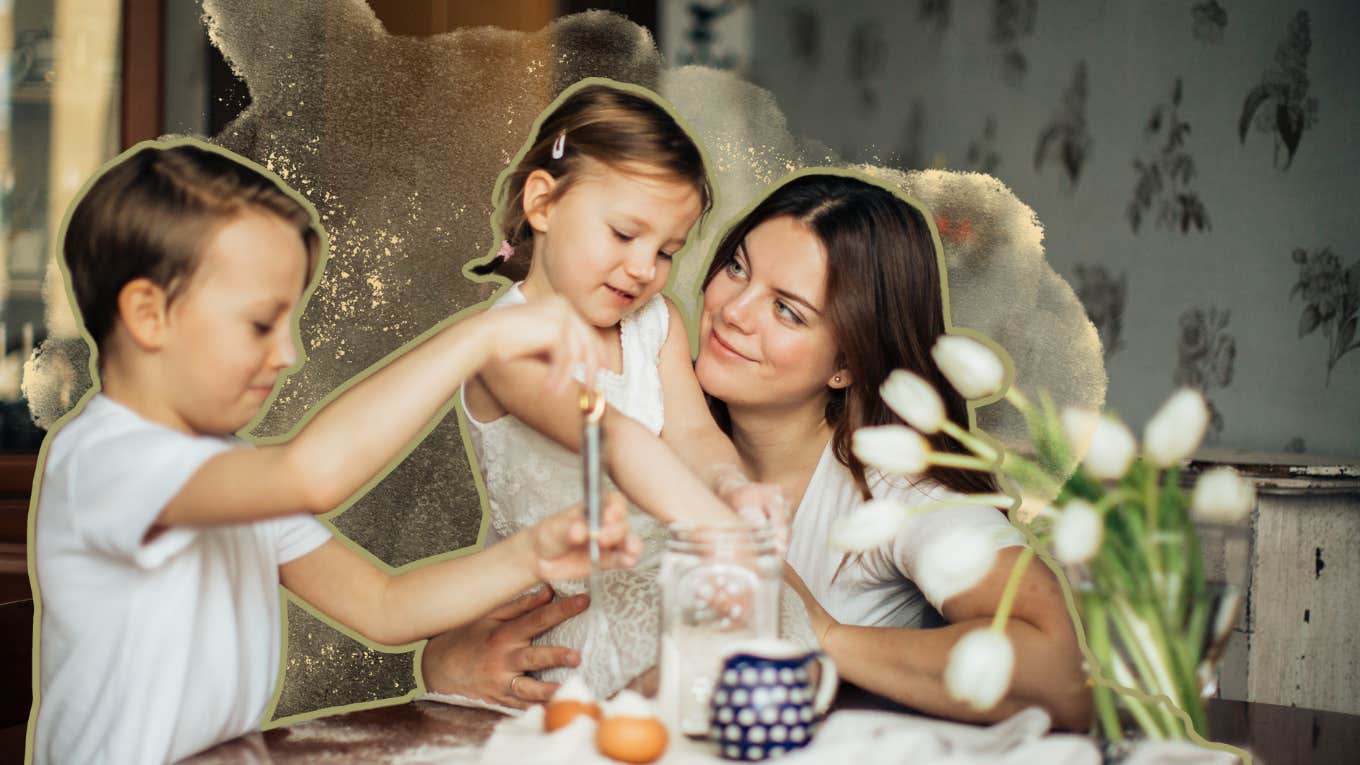How To Build Empathy And Patience With Children In 7 Actionable Steps — According To A Somatic Therapist
This brilliant Instagram post from therapist Yolanda Renteria is full of simple practices to help you show up better for the children in your life.
 Elina Fairytale | Canva
Elina Fairytale | Canva In a world filled with hustle and bustle, it's easy to overlook the importance of two fundamental qualities that can profoundly impact our interactions with children: empathy and patience.
These virtues, when nurtured within ourselves, can transform not only the way we relate to children but also enhance our own emotional resilience and well-being.
This work may feel overwhelming in a society that often values efficiency and quick fixes, but therapist Yolanda Renteria recently shared some actionable tips on Instagram we think anyone can start with.
7 ways to build empathy and patience when dealing with children, according to therapist Yolanda Renteria.
1. Evaluate your childhood
"If you look back at your childhood & still believe you deserved to be punished when you made mistakes/misbehaved, it's likely that you believe the same is true for children now," says Renteria in an Instagram post.
Taking a journey into your own past can be a powerful step in understanding your parenting approach. Were you treated with compassion and understanding, or did you grow up in an environment where punishment was the norm? By acknowledging these early experiences, you can begin the process of reevaluating your own beliefs and working on understanding authoritative parenting.
Challenge the narrative that harsh discipline is the only way, and embrace a more empathetic and nurturing approach when dealing with children. Renteria suggests "Work on understanding authoritative parenting & challenge this narrative."
2. Learn parenting tools & strategies
Renteria states, "The first options for discipline that are likely to come up are the ones we know. Many times our frustration with kids stems from not knowing what to do, other than the things we were exposed to growing up."
These familiar methods may not always be the most effective, leading to frustration when dealing with kids. To break free from this cycle, it's crucial to educate yourself about alternative parenting tools and strategies.
Learning new, constructive approaches to discipline can empower you to make better choices when interacting with children, ultimately creating a more positive and supportive environment.
3. Pay attention to children's behavior
"Kids always try to connect with adults through sharing & playing," Renteria continues, "Notice how many times children attempt to connect & how many times they're rejected by the adults in their lives."
Recognizing these attempts at connection and responding positively can strengthen the bond between you and the children in your care. By being attentive to their need for interaction, you not only validate their emotions but also build trust and a more nurturing relationship.
4. Rethink meltdowns and tantrums
When you reframe these challenging moments, it allows you to approach them with empathy and understanding, addressing the underlying emotional distress rather than merely reacting to the behavior. Renteria suggests you try to look at these events as "stress responses rather than manipulation tactics."
This shift in mindset can transform your interactions with children and create a safer space for emotional expression.
5. Attune to children's emotions
"Notice children's facial expressions, body language, and emotions," Renteria advises, "Oftentimes adults become desensitized to these, but attuning to them can help build empathy and connection."
By paying close attention to a child's non-verbal signals and emotions, you can respond more effectively and compassionately, fostering a stronger connection and a deeper understanding of their needs.
6. Learn to see laughter, fun, and play in a positive light
"Many adults are wired to see these as too much or inconvenient if those were the messages they received growing up. While there are times children can be redirected, a child experiencing these is always positive," says Renteria.
Embracing these joyful moments can not only enrich a child's life but also bring more happiness and positivity into your own. Learn to appreciate and encourage these expressions of joy as an essential aspect of a child's emotional and cognitive development.
7. Laugh and play with children
Renteria explains, "Many adults didn't grow up playing with adults, so this concept may feel foreign & uncomfortable. When we learn to play and laugh with kids, not only do we feel more connected to them, but we also feel more connected to our inner child."
These shared moments of laughter and play can strengthen the bond between you and the children in your life, rekindling a sense of joy, curiosity, and creativity within yourself.
Whether you're a teacher, caregiver, mentor, or simply someone who interacts with children on a regular basis, the ability to connect on an empathetic level and exercise patience can be a transformative force in building meaningful relationships and fostering growth.
Deauna Roane is an associate editor for YourTango who covers pop culture, lifestyle, astrology, and relationship topics. She's had bylines in Emerson College's literary magazine, Generic, and MSN.

